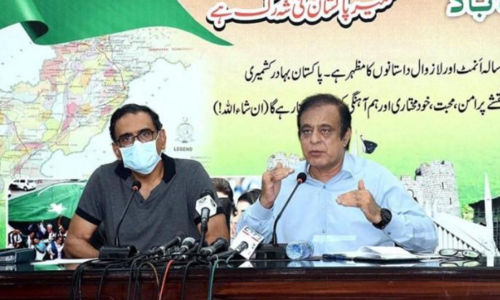ISLAMABAD: As the government struggles to translate memorandums of understanding (MOUs) signed with the Independent Power Producers (IPPs) of thermal and renewable power plants for tariff discounts into contracts, sponsors of hydropower power plants (HPPs) have declined to revise old agreements with the government.
A senior government official told Dawn that sponsors of HPPs had three to four sessions with the IPPs negotiations committee led by former federal secretary Babar Yaqoob and comprising members of stakeholders and agencies appointed by the government to negotiate power contracts. However, nothing had been finalised yet, he said.
Sources close to HPPs confirmed “they refused to sign MOUs prepared by the negotiation committee” because the government was applying a “broad brush to all IPPs irrespective of technology” (furnace oil, gas, coal, solar and wind etc) and seeking reduction of equity return, operation and maintenance expenses and others even though all power generating technologies were different.
These sources said that thermal, wind and solar power plants comprised 85-90pc plant & machinery cost and the balance 10-15pc as civil works but hydropower on the other hand comprised about 80pc of civil works and the remaining 20pc as plant and machinery cost. That is why the HPPs had long gestation period of 6-8 years unlike 2-3 three years of other technologies.
Sponsors’ talks with govt committee remain inconclusive
Hydropower, with the highest civil works content of any power generating technology had advantages for the local economy, job creation and boosting local construction materials industries but due to the high civil works content the final construction cost becomes unpredictable. Most of the hydropower projects worldwide suffered a degree of cost overrun as such projects, notwithstanding the preliminary design involved design-built arrangements.
The government team was told that National Electric Power Regulatory Authority (Nepra) only allowed specified and earmarked cost, the cost overruns end up being disallowed and borne by the sponsors, thus immediately reducing the equity return. The Nepra generally allowed allows a 17pc internal rate of return (IRR) but sponsors insist that no HPP ever achieved this and mostly end up with 11-13pc IRR.
“Given the massive risks hydropower construction entailed including hydrological risk, seismic and geological risk, remote locations and accessibility issues, the effective IRR of 12-13pc was already lower than all other technologies even after their revised rates under fresh MOUs.
“Hydropower required a high equity return of no less than 17pc to attract investors who enter with an appreciation of the multitude of construction risks and the strong likelihood that their equity return will fall below this level,” said a source associated with an HPP, adding that starting off a hydropower project lower than 17pc was not an option if hydropower was a priority area.
He said the IPP committee would have to fine-tune its approach and consider each generating technology separately with an eye on future investment required in the sector. At present three HPPs of about 340MW were in operation while 10 HPPs, some of them under China-Pakistan Economic Cooperation — are under construction with targeted completion of 3,750MW in 2027 and 1,200MW in 2028.
Published in Dawn, September 21st, 2020














































